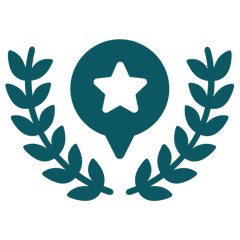Duration and structure
Generally speaking, there are two kinds of fellowships: those for current students and those for recent graduates.
Fellowships for current students are designed to align with school schedules. Many graduate schools encourage fellowships for students between the first and second year of study. During that summer, fellows often work a full-time 40-hour-a-week schedule. Other fellowships might run for a semester or the entire school year, with mentors collaborating with students to balance work and class schedules.
Post-grad fellowships are more similar to full-time jobs. Typically, these fellowships last an entire year, and fellows work a full-time schedule like employees.
Common focus areas and specializations
Whatever your specific interest in public health may be, there is a fellowship designed to meet your needs.
Government organizations, like the CDC and USDA, have well-established programs that focus on epidemiology, environmental health, and even rural health. If you’re more interested in state or city policy, local health departments also offer excellent programs in the field. The California Department of Public Health, for example, offers a range of fellowship opportunities for people of all experience levels. If you’re passionate about applying public health tools in policy, government positions might be the choice for you.
Non-governmental organizations, like the World Health Organization or USAID’s Global Health Fellows, have similar programs available for global health-centric practitioners. These options can also provide fellows with experience abroad, adding another layer of immersion to the applied practice experience.
Non-profit organizations are yet another fantastic option for fellowships. While likely smaller in scale, these organizations can give you more one-on-one time with mentors. If you’re particularly mission driven on a certain topic, such as women’s health or vaccine awareness, foundations advocating for these issues will frequently take on public health fellows.
Sometimes, narrowing down your search can be the biggest barrier to getting started. Starting at your university’s career center can be an excellent place to start. Many career offices keep running lists of fellowships that take the guesswork out of the process.
Expectations and deliverables for fellows
While a fellowship is a learning opportunity for early career professionals, it’s also a chance for you, the fellow, to start establishing a professional reputation. Throughout the course of a fellowship, you’ll be expected to listen, learn, and conduct yourself in a professional environment. As time goes on, a mentor might give you more solo responsibility, giving you the chance to represent the organization and make connections in the field.
A thorough fellowship program is also a collaborative process where mentors and fellows work together to understand each other’s goals. While fellows will frequently contribute to daily work, many mentors will also help you carry out your own project that adds value to the organization while giving you a professional work product to show for your time.






